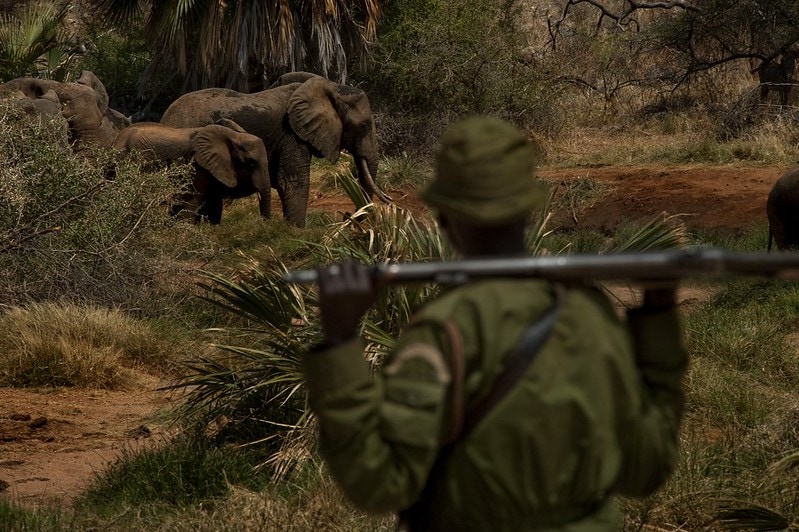In Southern Africa – where South Africa and Botswana account for two of the most economically unequal countries in the world according to the GINI index – the coronavirus lays bare longstanding, systemic and structural faultlines that now serve as conduits for viral distribution. In South Africa, the transition from apartheid to neoliberal, market-driven governance has proven to be cruel, giving way to widespread economic disparity, and market-driven injustice. Botswana, once touted as a model of development and an African success story of democracy, has become overwhelmed by the logics of growth upon which so much of its democracy is founded and, in recent years, has become increasingly militarised. The promises of infrastructure and social services have been wrapped in red-tape, and human rights and equality rendered as inessential “nice-to-haves”. The Corona virus, however, has lifted the red-tape that, like band-aids left on too long, reveals social wounds that are a threat not only to the poor and marginalised, but also the elite. All are potentially infected.
The Corona virus, however, has lifted the red-tape that, like band-aids left on too long, reveals social wounds that are a threat not only to the poor and marginalised, but also the elite. All are potentially infected.
Inequities in access to clean water, sanitation and shelter have long been addressed by engineers, policy makers, publics, courts, and universities, but each within their own specialist ambit: with the result that service delivery has been stymied by un-navigable or corrupt procurement processes, and hobbled when accusations of “politics” been leveled at those who have dared to criticise the absence of equality. COVID-19, however, exposes the brutalities of neoliberalism for what they have generated: vectors through which the virus proliferates. The failures of accountancy-driven policy, driven by the privatisation of the commons and the division of privatised subscription services to education, healthcare – in which particular forms of care can be purchased – and security for the wealthy while the poor suffer the dysfunctional commons, serve to highlight the critical importance of restoring a commons based on a politics of care.
Governments in South Africa and Botswana have responded to COVID-19 with appeals to the forces of the market and the military
Governments in South Africa and Botswana have responded to COVID-19 with appeals to the forces of the market and the military. In South Africa, the military and police were quickly deployed to townships to enforce the movement restrictions of a strict lockdown, leading to the arrest of more than 200,000 people, mostly black, for crimes such as walking without grocery store receipts used to legitimize their movements and for smoking cigarettes, as tobacco sales have been also banned during lockdown. This policing has disproportionately targeted poor households whose basic needs require the ability to move, including the daily procurement of water from community standpipes. Botswana, like South Africa, activated its military reserves to secure its closed borders, deployed police services to escort cargo trucks that brought vital supplies into the country, made special priority trade route arrangements with neighboring Namibia, and issued hefty fines to citizens violating movement restrictions, though arrests have been much more limited. Yet that pair – South Africa and Botswana, respectively – represents a misdiagnosis of the problem: The issue is that the unmaking of the commons, through two decades of neoliberalism, has generated inequities that have the potential to provoke food riots and other violent responses. With the military carrying live ammunition, the risks to fragile societies are immense.
The issue is that the unmaking of the commons, through two decades of neoliberalism, has generated inequities that have the potential to provoke food riots and other violent responses
On the same day Botswana prepared for its lockdown on April 2nd after announcing its first four coronavirus cases, including the first death, the government proudly announced that the Botswana Defense Force (BDF) had shot and killed five poachers who were carrying “weapons of war.” Sure not to omit – and even capitalise on – the immediacy of the Corona virus threat, the very next sentence in the press release read: “As a professional, prompt, and decisive force, the BDF will continue to execute its mission and other assigned tasks, whilst concurrently in collaboration with all Batswana fight a war against the invisible enemy in the form of the COVID19 pandemic” (Dikole 2020). The phrasing represents the mobilisation of militaristic discourse deployed against the “invisible enemy” that is the virus, being explicitly conflated with the Botswana militaristic approach to conservation with its “shoot-to-kill” policy directed towards poachers. Rather than environmental, or even multispecies care, we get warfare. Such brutalities cluster and become conflated with one another as they proliferate, normalising surreptitious violences.

Rather than environmental, or even multispecies care, we get warfare.
The government of Botswana has, however, been proactive in activating its public services to mobilise food distribution schemes, provide wage subsidies, create a fund that calls on citizens to make innovative responses to COVID-19 actionable, and more. In many ways, the state’s immediate response to COVID-19 has been both forceful and care-full, while reflecting the growing tensions between its increasingly liberal logics of governance and the long and rich, but troubled, history of the commons connecting the populace to the state. Botswana’s militarised response to poaching is often argued to be an act of defending the commons, a tenuous position that simultaneously invokes claims to the commons and private property.
Botswana’s militarised response to poaching is often argued to be an act of defending the commons, a tenuous position that simultaneously invokes claims to the commons and private property.
Relatedly, Botswana announced that its controversial plans to reintroduce commercial hunting this year in its Wildlife Management Areas (WMAs), one form of remaining land commons (the other being Tribal Grazing Lands), will now likely be suspended until next year due to the global pandemic and associated travel restrictions. Rather ironically, liberal market logics drove the decision to reintroduce hunting as a means to finance the wildlife commons and its local communities. In parts of the Kalahari, however, remote community leases on these commons are set to expire in 2021, and if they cannot show sufficient development plans and income generation via tourism and hunting, large swaths of the WMAs will be rezoned for private cattle ranches, redistributed away from community-wildlife commons and towards privately-owned, for profit industries. Out of sight, movement restrictions and border closures allow for the capitalist creep of the commercial beef industry into the commons, dividing and privatising. Capitalist creep is the undoing of the possibility of the Commons. In this case, the nonresponse from the state is already trapped by its own neoliberal logics of accounting, further disintegrating the possibility to care for the commons even as food trucks rattle their way down dusty roads to make deliveries.
Capitalist creep is the undoing of the possibility of the Commons.
In South Africa, day 12 of the South African shutdown closed with nine COVID-19 deaths and eight deaths from military and policing operations. The number of deaths at the hands of police and military has since grown to at least 12, while arrests top 230,000. The effect of forcible compliance is to destroy relationships at a time when they most need to be built. The Defence Force should be mobilised not for policing but to deliver functional sanitation and running water, and do what 20 years of the brutalist neoliberal red tape has failed to do, because without soap, running water and functioning sanitation, lockdowns in shack settlements with shared taps and toilets are not only meaningless, but unbearable. The presumption that any “national threat” requires a military response to “combat” it potentially undermines societies, and risks putting governance on a war footing against its citizens. Militarised approaches to health and wellbeing are antithetical to the resolution of the crises they purport to address. Compare, for example, the self-reflection of Doctors Without Borders in early 2019 after their Ebola response teams in the Democratic Republic of Congo were attacked (Nguyen 2019).
The effect of forcible compliance is to destroy relationships at a time when they most need to be built.
In South Africa, Farmers Weekly reported more than 1,500 official complaints of unjustifiable and excessive pricing on food items in early May, ranging from canned goods and flour to fresh produce. And yet, in the face of the neoliberal failures, where people in need of food supplies from the state during the lockdown have had to stand in kilometer-long queues, many South Africans have mobilised their own communities to procure and deliver food and hygiene supplies to those in need. The social responsibility demanded from citizens, while admirable and perhaps an attempt to reclaim the commons through care, also cements the neoliberal government’s position in displacing social and moral responsibility onto individual citizens. The accountability of the state appears is reduced to its aspect as a military and market force, while the account-ability of care is dangerously displaced to privileged individuals in a free market.
COVID-19 serves as a stark warning that it is possible for neither markets nor militaries to facilitate social cohesion in times of pandemic, or multi-country ecological crises. The crisis – and the current wave of price-gouging by supermarket chains that benefit neither farm worker nor consumer – highlights the limitations of market-driven approaches to governance that have characterised post-democracy neoliberalism in South Africa and the growth-without-end approach to Botswana’s governance.
The presumption that global capital will deliver solutions is profoundly flawed.
In dealing with COVID-19, research scientists point out that corporations are not disclosing vital research on vaccines, out of concern for intellectual property rights. Business-driven and market-driven solutions to food distribution, in the current crisis, have not proven viable, with extensive documentation, on social media and in food-system think-tanks, of South African supermarkets hiking food prices.
Globally, COVID-19 induced economic shutdowns have brought into view the shortcomings of contemporary market-based, and military-based, solutions to major crises. Their shortcomings in respect of human rights and social solidarity are both global and specifically local. Societies are much more than markets and militaries, however, and what is not in view in market- and military-driven responses is the networks and forms of social solidarity formed at local levels, via which precarious households find the support they need to survive.
Bring in the military, by all means, to fix toilets, ensure running water, and do what 20 years of the brutalist bureaucracies of neoliberal municipal procurement have failed to do.
Neoliberalism has long ignored the non-monetised work of care that holds societies together. Following economist Kate Raworth, we identify the core economy as one where households, predominantly through the labour of women, provide the “time, knowledge, skill, care, empathy, teaching and reciprocity” that is needed to sustain societies (Raworth 2017, 68). We do so, however, acknowledging that cores – as collectives – vary, encompassing the relations of care provided by both biological and non-biological kin, neighbours and elders, and alternative queer formations that sustain social groups across varying scales of solidarity. While it is widely recognized that care is frequently appropriated by heteronormative family and consumer-oriented projects (Cooper 2017), a care for the commons can be operationalized otherwise. Care, as Annemarie Mol (2008) has shown, provides an alternative to the liberal logic of choice. Whereas choice presupposes an individual, modern, rational human actor, we should instead acknowledge a more distributed collective. What the time of COVID-19 highlights is not a liberal, individual actor – that supposedly universal figure of the Enlightenment – but rather our distributed collectives, our commons, our cores. Care must be recuperated to recuperate the commons.
Bring in the military, by all means, to fix toilets, ensure running water, and do what 20 years of the brutalist bureaucracies of neoliberal municipal procurement have failed to do. But the work of statecraft, in this moment, cannot quickly repair disastrously damaged economies. The only option is to restore and strengthen the economy of care that still functions, to repair the brutal inequalities that flourished under privatisation and neoliberalism, whose faultlines have become conduits for Covid-19.
References
Cooper, Melinda. (2017) Family Values: Between Neoliberalism and the New Social Conservatism. MIT Press.
Dikole, Colonel Tebo K. (Commander, BDF). (2020) “Anti-Poaching Incident,” Botswana Defence Force Press Release. April 2.
Mol, Annemarie. (2008) Logic of Care: Health and the Problem of Patient Choice. London: Routledge.
Nguyen, Vinh-Kim. (2019) “An Epidemic of Suspicion: Ebola and Violence in the DRC”. New England Journal of Medicine, 380:1298-1299
Raworth, Kate. (2017) Doughnut Economics: Seven Ways to Think Like a 21st-Century Economist. London: Penguin.
Image:
Community rangers guard elephants in Sera Conservancy, Northern Rangelands, Kenya – Found on Flickr, photo by USAID Biodiversity & Forestry (CC BY-NC 2.0)







